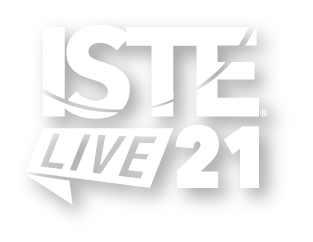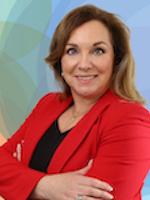

Reaching Beyond the Classroom: Global Collaborator |
Participate and share : Interactive lecture
Jamie Galgana Renee Sanchez MARIA TOLEDO Ed Zurita
Using the ISTE Standard for Global Collaborator, LA Unified supports educators on the concept of global collaborator through the exploration of a real-world issues, namely the Sustainable Development Goals. Explore how to engage students in support of real-world problems.
| Audience: | Professional developers, Teachers, Technology coordinators/facilitators |
| Skill level: | Beginner |
| Attendee devices: | Devices required |
| Attendee device specification: | Laptop: Chromebook, Mac, PC Tablet: Android, iOS, Windows |
| Topic: | Using the ISTE Standards |
| Grade level: | PK-12 |
| Subject area: | STEM/STEAM |
| ISTE Standards: | For Education Leaders: Connected Learner
Collaborator
Global Collaborator
|
As a result of this session, participants will leverage digital resources to demonstrate competency by: learning the value of utilizing real world issues to engage and connect with others in meaningful ways; build cultural competency by engaging with students, colleagues, and experts; leverage digital resources to explore topics and examine issues that would otherwise not be possible from a brick and mortar setting.
This workshop includes three parts: First, gain a deeper understanding of Global Collaborator, Collaborator, and Connected Learner. Second, see current examples of what it is like to be a global collaborator in action. Third, explore and engage with a variety of digital resources, personalized to your education role (student, educator, education leader)
1. LAUSD Background
2. Inclusion Activity: Digital Citizens as Global Collaborators
3. Global Collaborator identity: What kind of global collaborator are you? (Based on the attributes of global collaborator)
4. Guiding Questions:
In what ways do Global Collaborators value the diversity of learners in both offline and digital spaces?
What Global Collaborator technologies will best support student engagement to work interdependently and synergistically?
How can Global Collaborator practices support my work with students, educators and families/community members?
5. ISTE Overview: The ISTE Standards for Students, Educators, and Education Leaders provide a framework that guides Global Collaborator and make a connection to how the ISTE standards apply to different contexts:
As Students, we broaden our perspectives and enrich our learning by using digital tools
Educators improve their practice, solve problems and dedicate time to collaborate with others
Leaders remain current through professional learning model how technology can improve learning
Altogether, these three sets of ISTE Standards inform the range and depth of various contexts.
6. Pause and Think: What kind of educator/ leader do you need to be to support collaboration?
7. Why Global Collaborator?:
Use digital tools to broaden their perspectives and enrich their learning
Working effectively in teams locally and globally
Develops empathetic problem solvers and authentic real-world learning
Engaged learners for life
8. Global Collaboration Continuum: Local to Global
Provide current examples of what the continuum looks like
9. Authentic Learning: Collaborate in meaningful ways through Sustainable Development Goals
10. Collaborative Tools for Students and Educators:
Various resources
11. Collaborative Tools for Families and Communitee:
Various resources
This workshop is in alignment with the following research and frameworks: Learning Progressions, Task Force Recommendations, The Presenters Fieldbook, Adaptive School Foundation Seminar, Differentiated Coaching, Universal Design for Learning, The Power of Protocols, Analyze, Design, Develop, Implement, and Evaluate (ADDIE) Model, Awareness, Desire, Knowledge, Ability, Reinforcement (ADKAR Model), Association for Supervision and Curriculum Development (ASCD) website, ISTE Standards for Students, Technological Pedagogical Content Knowledge (TPACK) and Substitution, Augmentation, Modification, Redefinition (SAMR) Model, Common Core Standards in Diverse Classrooms, Open online resources.

Jamie is a Specialist for Instructional Leadership Support with the Instructional Technology Initiative. She supports L.A. Unified educators and leaders in leveraging digital tools and resources for student success through various models of support, including working with Practitioner Schools, supporting Professional Development, and assisting with ITI’s Signature Events. Jamie was an elementary teacher for 10 years and worked in partnership with universities to mentor pre-service teachers. Jamie has a masters in Elementary Mathematics and a Preliminary Administrative Services Credential. She’s a Google Certified Trainer, Microsoft Innovative Educator, Common Sense Certified Educator and a Prosci Certified Change Practitioner.

Renee Sanchez currently serves as an Instructional Leadership Support Specialist with Instructional Technology Initiative. She has worked as an educator in the Los Angeles Unified School District for 14 years. Her goal is to provide equitable opportunities to all students in educational technology, computer science, and digital citizenship. Renee’s work is rooted in the belief that all students can learn, and education is foundational to life success.



Ed Zurita is an ISTE Certified Educator and member of the Los Angeles Unified School District’s Division of Instruction Instructional Technology Initiative (ITI) where he helps to lead the district’s 21st century instructional practices through implementation of the International Society for Technology in Education (ISTE) standards and the district’s Leading with Instruction approach. Mr. Zurita provides professional development, support and training to teachers, administrators, paraprofessionals and other educational staff both in the schools that he serves and throughout the district.